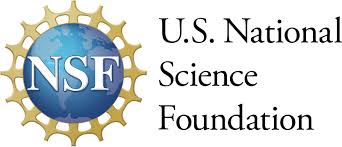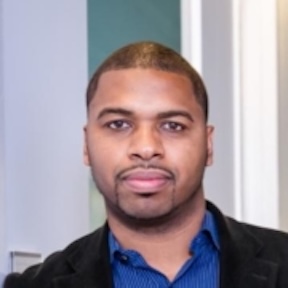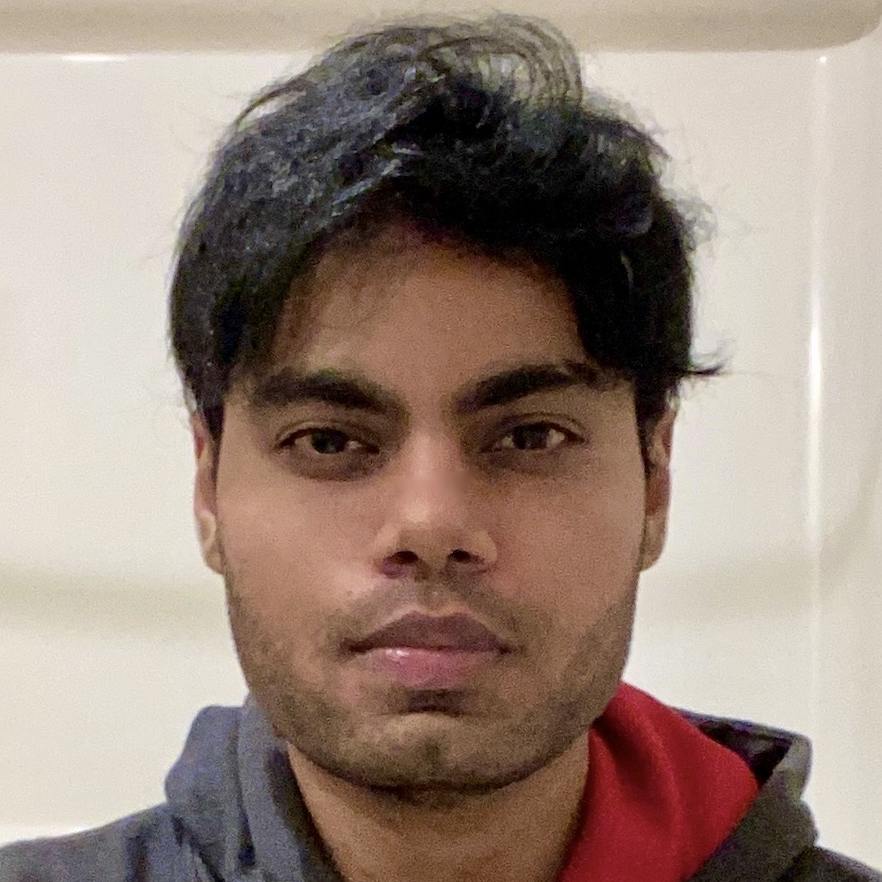| Sunday, June 1 |
|
|
|
| Time |
Agenda |
|
|
| After 4:00pm |
Hotel Check-in |
|
|
|
|
|
|
| 6:30pm–8:00pm |
Reception Dinner at Hilton Garden Inn Ithaca in the Brindley Room |
|
|
|
|
| Monday, June 2 |
|
|
|
| Time |
Agenda |
|
|
| 8:00am–9:00am |
Breakfast |
|
|
|
|
|
|
| 9:00am–10:30am |
Welcome and Opening Remarks |
|
|
|
Session 1: Network Architecture |
|
|
|
Talk # 1: Realizing RotorNet. [slides]
Speaker: Alex Snoeren (University of California, San Diego) |
|
|
|
Talk # 2: Semi-Oblivious Reconfigurable Datacenter Networks.
Speaker: Nitika Saran (Cornell University) |
|
|
|
Talk # 3: The Role of Programmable Photonics in Distributed ML.
Speaker: Rachee Singh (Cornell University) |
|
|
|
Discussion / Panel |
|
|
|
|
|
|
| 10:30am–11:00am |
Break |
|
|
|
|
|
|
| 11:00am–12:30pm |
Session 2: Transport |
|
|
|
Talk # 4: Reshaping Transport and Traffic Engineering in Reconfigurable Data Center Networks. [slides]
Speaker: Shawn Chen (Carnegie Mellon University) |
|
|
|
Talk # 5: Shale: Towards a Practical, Scalable Oblivious Reconfigurable Network. [slides]
Speaker: Hakim Weatherspoon (Cornell University) |
|
|
|
Talk # 6: Meeting the Promises of Reconfigurable Data Center Networks with Dedicated Transport.
Speaker: Federico De Marchi (Max Planck Institute for Informatics) |
|
|
|
Discussion / Panel |
|
|
|
|
|
|
| 12:30pm–1:30pm |
Lunch |
|
|
|
|
|
|
| 1:30pm–2:45pm |
Session 3: Data Plane |
|
|
|
Talk # 7: Remote Memory ~ Local Memory over Reconfigurable Ethernet Fabric. [slides]
Speaker: Vishal Shrivastav (Purdue University) |
|
|
|
Talk # 8: Packet-level Data-plane Programmability Meets Reconfigurable Networks.
Speaker: Mark Silberstein (Technion) |
|
|
|
Talk # 9: Morphlux: Programmable Chip-to-Chip Photonic Fabrics for Scale-up Accelerator Networks.
Speaker: Abhishek Vijaya Kumar (Cornell University) |
|
|
|
Discussion / Panel |
|
|
|
|
|
|
| 2:45pm–4:00pm |
Break and Campus Tour |
|
|
|
|
|
|
| 4:00pm–5:15pm |
Session 4: Control Plane |
|
|
|
Talk # 10: Söze: One Network Telemetry Is All You Need for Per-flow Weighted Bandwidth Allocation at Scale. [slides]
Speaker: T. S. Eugene Ng (Rice University) |
|
|
|
Talk # 11: Mitigating effects of wavelength-specific faults in cloud WANs.
Speaker: Arjun Devraj (Cornell University) |
|
|
|
Talk # 12: Hardware Feasability for Semi-Oblivious Reconfigurable Networks. [slides]
Speaker: Yunxi Shen (Cornell University) |
|
|
|
Discussion / Panel |
|
|
|
|
|
|
| 5:15pm–6:15pm |
Discussion: Future Directions |
|
|
|
|
|
|
| 6:15pm–6:30pm |
Travel to Dinner |
|
|
|
|
|
|
| 6:30pm–8:00pm |
Dinner at Taverna Banfi |
|
|
|
|
| Tuesday, June 3 |
|
|
|
| Time |
Agenda |
|
|
| 8:00am–9:00am |
Breakfast |
|
|
|
|
|
|
| 9:00am–10:20am |
Session 5: Routing |
|
|
|
Talk # 13: Breaking the VLB Barrier: Randomized Routing With a Single Spraying Hop. [slides]
Speaker: Robert Kleinberg (Cornell University) |
|
|
|
Talk # 14: Random and Universal Connection Schedules for Reconfigurable Networks.
Speaker: Tegan Wilson (Northeastern University) |
|
|
|
Talk # 15: New Algorithmic Theory for Data Center Routing. [slides]
Speaker: Miguel Ferreira (Carnegie Mellon University) |
|
|
|
Discussion / Panel |
|
|
|
|
|
|
| 10:20am–10:50am |
Break |
|
|
|
|
|
|
| 10:50am–12:30pm |
Session 6: Scheduling |
|
|
|
Talk # 16: Scheduling Spllitable Jobs on Reconfigurable Machines. [slides]
Speaker: Rajmohan Rajaraman (Northeastern University) |
|
|
|
Talk # 17: Scheduling for Weighted Flow and Completion Times in Reconfigurable Networks. [slides]
Speaker: Michael Dinitz (Johns Hopkins University) |
|
|
|
Talk # 18: Anti-affinity in Reconfigurable Networks from the Perspective of Competitive Analysis.
Speaker: Omer Wasim (Northeastern University) |
|
|
|
Talk # 19: Nanosecond Time Synchronization for Optical Data Center Networks.
Speaker: Yiting Xia (Max Planck Institute for Informatics) |
|
|
|
Discussion / Panel |
|
|
|
|
|
|
| 12:30pm–2:00pm |
Lunch and Group Discussions |
|
|
|
|
|
|
| 2:00pm–6:00pm |
An excursion to Taughannock Falls, Cayuga Ridge, and Thirsty Owl
Travel: A bus will leave Weill Hall at 2pm and drop everyone off at the hotel at 6pm. |
|
|
|
|
|
|
| 6:00pm–6:30pm |
Travel to Dinner
Directions: The restaurant is around 1 mile from the hotel. [google directions] |
|
|
|
|
|
|
| 6:30pm–8:00pm |
Dinner at Northstar Public House
The beautiful Ithaca Falls is just around the corner from the restaurant. |
|
|
|
|
| Wednesday, June 4 |
|
|
|
| Time |
Agenda |
|
|
| Before 8:00am |
Hotel Check-out |
|
|
|
|
|
|
| 8:00am–9:00am |
Breakfast |
|
|
|
|
|
|
| 9:00am–10:15am |
Session 7: Network for ML Training I |
|
|
|
Talk # 20: TopoOpt: Co-optimizing Network Topology and Parallelization Strategy for Distributed Training Jobs. [slides]
Speaker: Frank Wang (Massachusetts Institute of Technology) |
|
|
|
Talk # 21: Obliviousness is a Bliss for ML Workloads.
Speaker: Keting Chen (Cornell University) |
|
|
|
Talk # 22: What would it take to reconfigure within a ML training step?
Speaker: Daniel Amir (Technion) |
|
|
|
Discussion / Panel |
|
|
|
|
|
|
| 10:15am–10:45am |
Break |
|
|
|
|
|
|
| 10:45am–11:30pm |
Session 8: Network for ML Training II |
|
|
|
Talk # 23: Throughput Bounds of Reconfigurable Networks: Insights and Reflections on Metrics for Collective Communication. [slides]
Speaker: Vamsi Addanki (Technical University Berlin) |
|
|
|
Talk # 24: ReCCL: Collective Communication Layer for Reconfigurable Networks.
Speaker: Eric Ding (Cornell University) |
|
|
|
Discussion / Panel |
|
|
|
|
|
|
| 11:30pm–12:30pm |
Discussion: Future Directions |
|
Closing Remarks |
|
|
|
|









